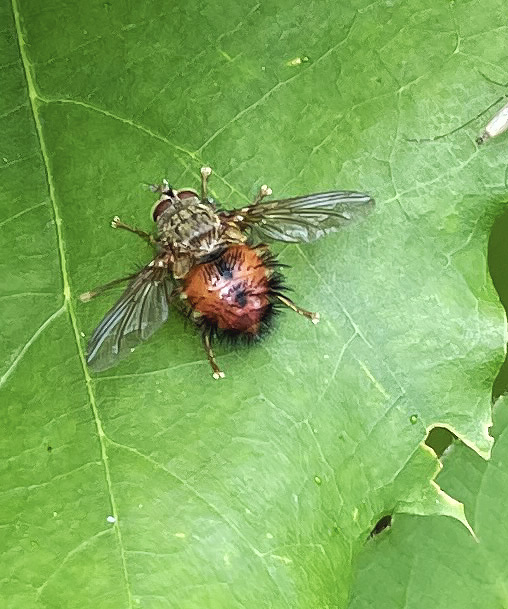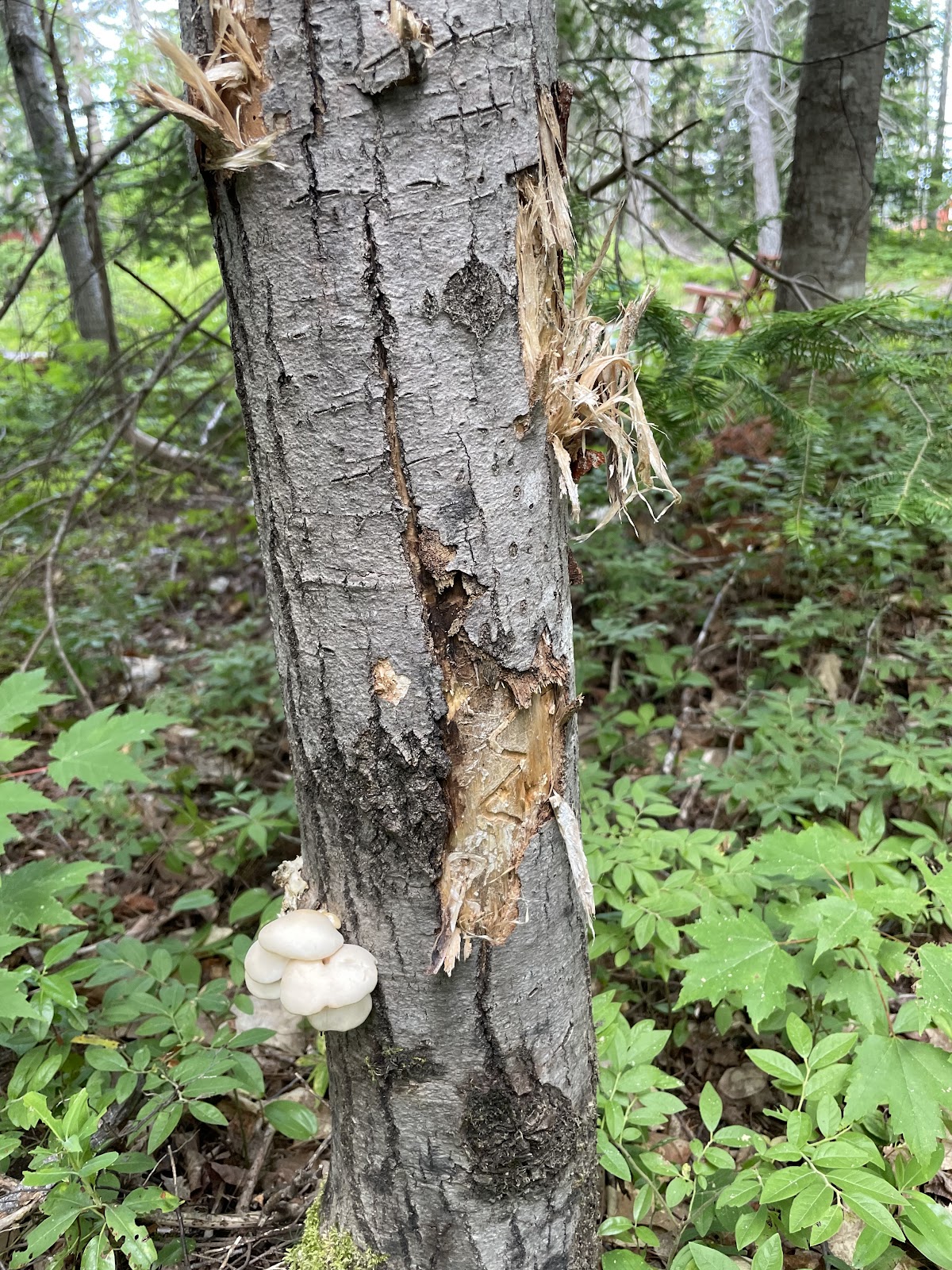NATURE
MONCTON NATURE NEWS
July 16, 2025
Nature Moncton members, as
well as any naturalist in New Brunswick or beyond, are invited to share
their photos and descriptions of recent nature sightings to build a fresh
(almost) daily edition of Nature News
To
respond by e-mail, please address your message to the information line
editor, nelsonpoirier435@gmail.com .
Please
advise the editor at nelsonpoirier435@gmail.com and the proofreader
Louise Nichols at Nicholsl@eastlink.ca if
any errors are noted in wording or photo labelling.
For more information
on Nature Moncton, check the website at www.naturemoncton.com
Proofreading
courtesy of Nichols nicholsl@eastlink.ca
**Nature
Moncton’s weekly Wednesday evening walk is on schedule for tonight Wednesday,
July 16 with a special visit to the newer section of Salisbury’s Highland Park
with all details below:
JULY
16 WEDNESDAY EVENING WALK
Location: Salisbury Highland Park - Braemar
to Parkin Trail Extension
Start
time: 6:30 PM
Hosts: David Miller and Lois Budd
Starting
Location: Parking
area on the unpaved section at the end of MacDonald Road. (There
will be a Nature Moncton Event sign).
Directions: If you come in by the highway,
take the Salisbury exit by the Big Stop, turn left, and head down 112
(Fredericton Road) to the Town of Salisbury.
Take a right on Main Street and continue to the first road on the left
past the Pizza Mill, MacDonald Road… If there are detours due to street
resurfacing, continue on Main Street, left onto Gordon Street >> Highland
Drive >> Chad Crescent>> left to MacDonald Road, turn right on
MacDonald to find parking.
Site
Background: Since our last visit to Highland Park, the
town of Salisbury has opened the Braemar to Parkin Trail Extension. The
trail and boardwalk are adjacent to provincially significant wetlands (PSW),
and were created as part of a Wetland Compensation project. “Wetland compensation is the process of offsetting
permitted impacts and loss of wetland area and/or function with actions that
ensure no net loss of wetland function in the province. Wetland compensation
ensures that when wetland area and/or functions are lost, they are restored,
enhanced or created elsewhere in New Brunswick.” https://www2.gnb.ca/content/dam/gnb/Departments/env/pdf/Wetlands-TerreHumides/WetlandCompensationGeneralGuidance.pdf
This new trail is open for use by the public, and dogs on
leashes are permitted. These trails are not possible without easements
with private landowners. The Town owns the trail, with easements with these
landowners. In order to maintain the trail, users must respect the space and
stay ON the trail.
Our
Walk: Our walk will be led by David Miller, one of
Salisbury’s resident bird enthusiasts. https://salisburynb.ca/our-community/salisbury-wetlands/.
We will
access the trail as usual from the wetlands park, then go left and onto the new
trail that goes under the bridge and onto Parkin Street along the river. The
trail is easy walking, with no hills or obstructions. The trail is approximately 1.8 kilometres in
length.
On our walk, we will see permeable pavers, which reduce run-off and allow for natural percolation through the pavers and into the granular base. As a condition for constructing the trail, pavers were required within the buffer(s) near the provincially significant wetland (PSW), being on the approach to the boardwalk and near the farm crossing.
There are
trees and ponds nearby, all raising mosquito larvae, so remember your bug
repellent. Don’t forget to wear your name tag! All are welcome,
Nature Moncton members or not.
Lois Budd has helped organize this Wednesday's Walk, but
she will not be joining us. She will be
working this Wednesday evening at the United Church’s Strawberry Take-Out,
where treats are available for $8.00 each. The take-out service
officially closes at 8:00 PM, but Lois has offered to keep our orders for us
after hours. Cynthia will collect and
relay our orders, so after our walk, we can pick them up and take them home.
**Most
naturalists are familiar with common milkweed and swamp milkweed, which are the
host plants for the monarch butterfly to oviposit upon; the larval caterpillars
need milkweed to complete their life cycle.
Another
milkweed relative, which many are unfamiliar with, is the butterfly weed,
which has been increasingly planted in gardens to attract the monarch
butterfly. The monarch butterfly is attracted to it and can complete its life
cycle on it.
Suzanne
Rousseau in Sussex has a large patch of butterfly weed in her garden and shares
a photo. The blooms are a showy orange; the plant grows 12-18 inches in
height and is a perennial.
Suzanne also
has swamp milkweed in her yard and is finding the milkweed leaf beetle
larvae on both milkweeds, and she removes all she can find. This beetle
uses milkweed and dogbane as its foraging plant.
(Editor’s
note: I am adding photos taken from the Internet of the milkweed leaf beetle
adult, larvae, and egg mass so folks will be able to recognize it.)
**It’s that
time of year when an incredible array of different insects are active, with
many that are very useful pollinators.
Lisa Morris
photographed the rotund-collared soldier beetle and the tomato
bristle fly both of which forage for pollen to make them significant
pollinators.
Lisa also
photographed oyster mushrooms recycling a dead snag. Markings in the
bark suggest another critter is doing the same.
**The warm
nights have many species of moths out on their adult mating flights, some of which
sport attractive designer markings.
John Inman
photographed the colourful small magpie moth (Anania hortulata) as
it day perched on a window. This species is abundant at the moment.
Nelson Poirier.
Nature Moncton







